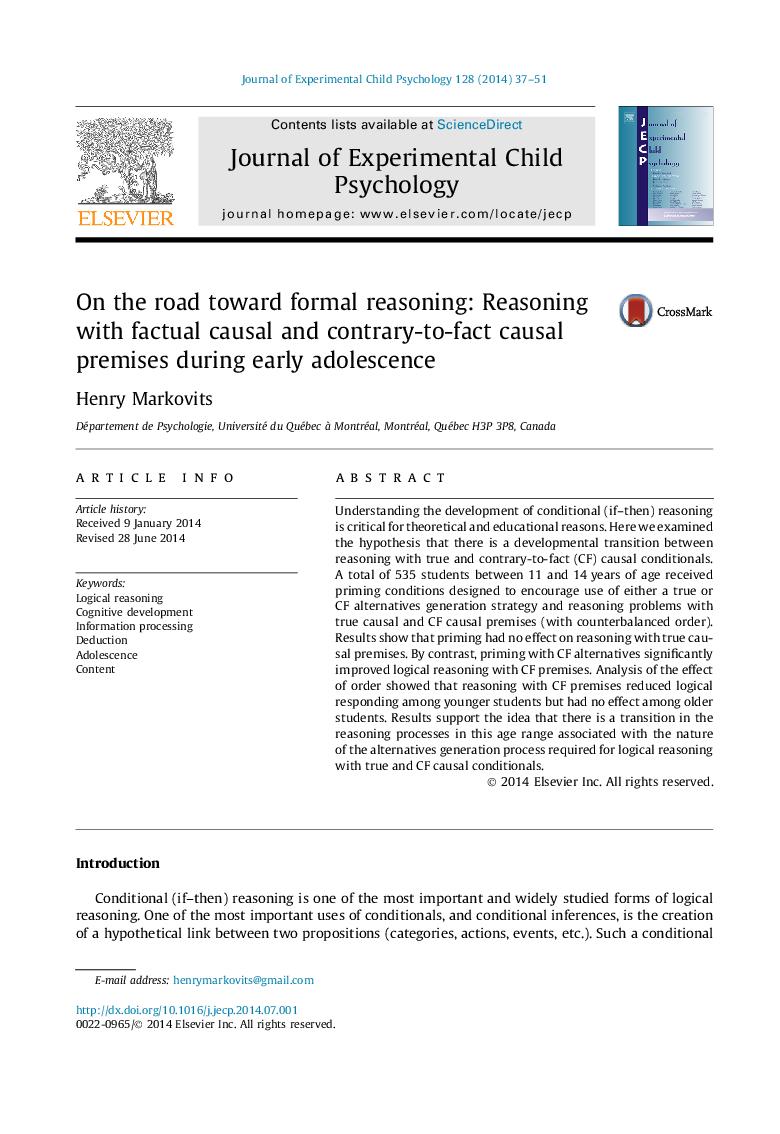| Article ID | Journal | Published Year | Pages | File Type |
|---|---|---|---|---|
| 7275184 | Journal of Experimental Child Psychology | 2014 | 15 Pages |
Abstract
Understanding the development of conditional (if-then) reasoning is critical for theoretical and educational reasons. Here we examined the hypothesis that there is a developmental transition between reasoning with true and contrary-to-fact (CF) causal conditionals. A total of 535 students between 11 and 14Â years of age received priming conditions designed to encourage use of either a true or CF alternatives generation strategy and reasoning problems with true causal and CF causal premises (with counterbalanced order). Results show that priming had no effect on reasoning with true causal premises. By contrast, priming with CF alternatives significantly improved logical reasoning with CF premises. Analysis of the effect of order showed that reasoning with CF premises reduced logical responding among younger students but had no effect among older students. Results support the idea that there is a transition in the reasoning processes in this age range associated with the nature of the alternatives generation process required for logical reasoning with true and CF causal conditionals.
Related Topics
Social Sciences and Humanities
Psychology
Developmental and Educational Psychology
Authors
Henry Markovits,
